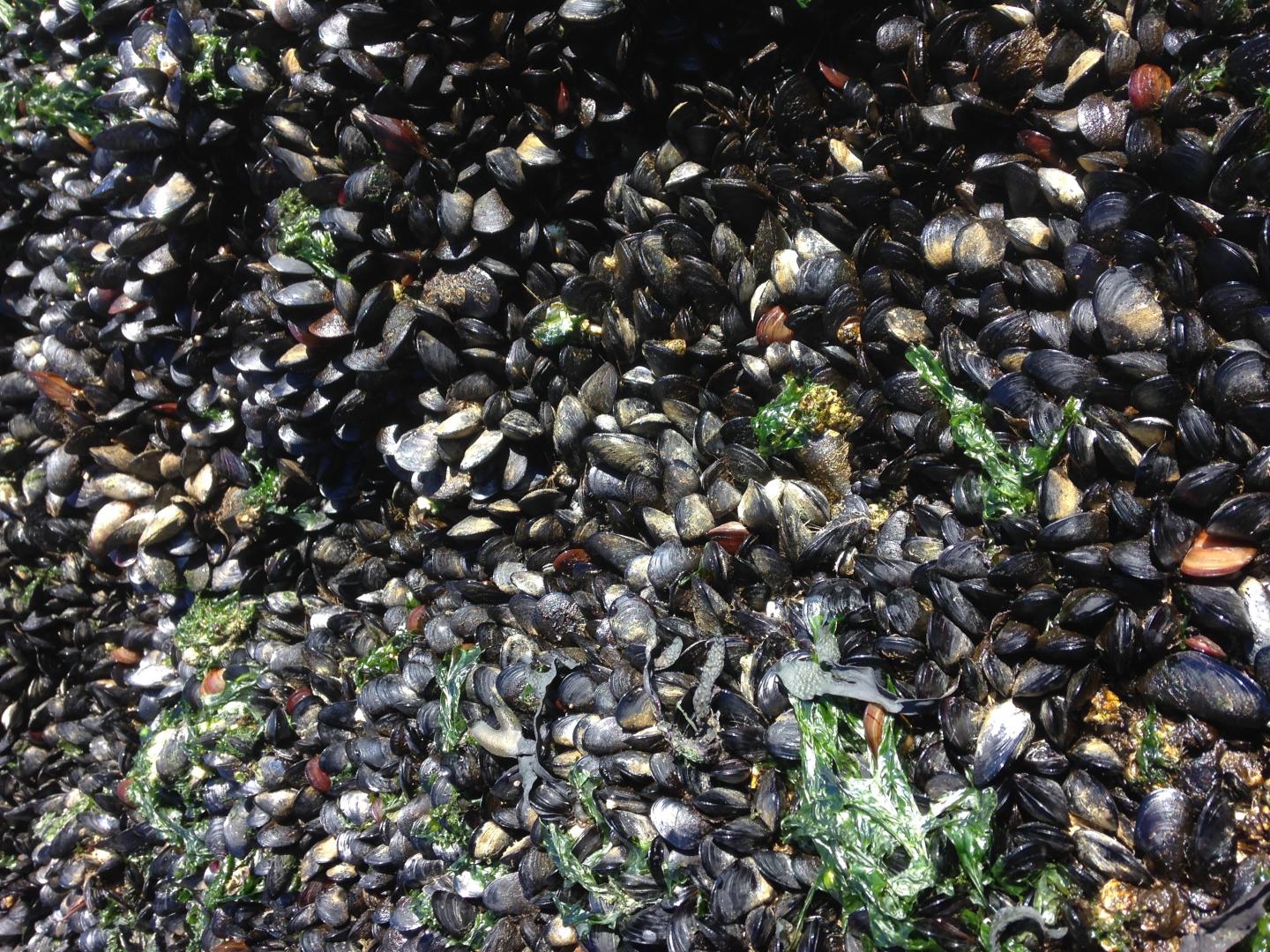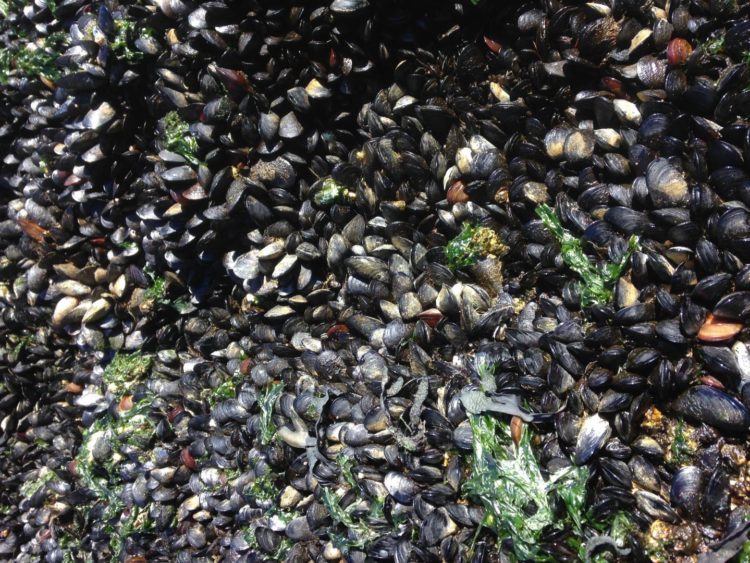Evidence from DNA sequencing reveals that an infectious cancer spread to 2 different species of mussels on both sides of the Atlantic Ocean, likely because affected mussels hitched a ride on ships

Credit: Susan A. Baldwin
An infectious cancer that originated in one species of mussel growing in the Northern Hemisphere has spread to related mussels in South America and Europe, says a new study published today in eLife.
The findings also suggest that humans may unwittingly be contributing to the worldwide spread of infectious cancers that can affect mussels and other bivalves such as clams and cockles.
Most cancers arise when DNA mutations occur in an organism’s cells that cause uncontrolled cell growth. While these cancerous cells do not normally spread to others, there are a few exceptions.
“Tasmanian devils, dogs and bivalves have all developed cancers that can spread to others, acting more like a pathogen or parasite,” explains lead author Marisa Yonemitsu, Research Technician at the Pacific Northwest Research Institute in Seattle, Washington, US. One such cancer, called a bivalve transmissible neoplasia, was previously found in a species of mussel called Mytilus trossulus (M. trossulus) that lives in British Columbia, Canada. Similar diseases have also been reported in related mussel species around the world, but it was not known if they were transmissible too.
In the current study, Yonemitsu and her colleagues sequenced DNA from cancer cells in the related species M. edulis, from France and the Netherlands, and M. chilensis, which lives on the coasts of Chile and Argentina. They wanted to determine whether the cancers are transmissible neoplasias and, if so, whether they were from the same lineage as the one in M. trossulus, or if these species had transmissible cancers of their own. “This would help us understand how often transmissible cancers can occur, how far they can spread in nature and whether they are able to affect new populations and new species,” Yonemitsu explains.
Unexpectedly, the team discovered that cancer cells collected in mussels from Europe and South America were nearly identical genetically, suggesting they came from a common origin – likely a single M. trossulus mussel with a primary cancer at some point in the past. Their analysis also revealed that this lineage of cancer is different from the one previously observed in Canada. This shows that transmissible cancer cells evolved more than once in M. trossulus, and in one case these cancer cells were transferred across the Atlantic Ocean and infected multiple species across the world.
“Since Mytilus mussels do not live in the equatorial zone, it would have been nearly impossible for them to have spread this cancer between South America and the Northern Hemisphere on their own,” notes senior author Michael Metzger, Assistant Investigator at the Pacific Northwest Research Institute. Instead, he says it is likely they were transported accidentally on international shipping vessels.
“Our study shows that infectious cancers in bivalves are widespread pathogens and that human intervention may be responsible for introducing them into new susceptible populations and species,” Metzger concludes. “Further studies will allow us to learn more about how these cancers evolve when introduced into new host species and how the hosts themselves can evolve in response.”
###
Reference
The paper ‘A single clonal lineage of transmissible cancer identified in two marine mussel species in South America and Europe’ can be freely accessed online at https:/
Media contact
Emily Packer, Senior Press Officer
eLife
[email protected]
01223 855373
About eLife
eLife is a non-profit organisation inspired by research funders and led by scientists. Our mission is to help scientists accelerate discovery by operating a platform for research communication that encourages and recognises the most responsible behaviours in science. We publish important research in all areas of the life and biomedical sciences, including Cancer Biology and Microbiology and Infectious Disease, which is selected and evaluated by working scientists and made freely available online without delay. eLife also invests in innovation through open-source tool development to accelerate research communication and discovery. Our work is guided by the communities we serve. eLife is supported by the Howard Hughes Medical Institute, the Max Planck Society, the Wellcome Trust and the Knut and Alice Wallenberg Foundation. Learn more at https:/
To read the latest Cancer Biology research published in eLife, visit https:/
And for the latest in Microbiology and Infectious Disease, see https:/
Media Contact
Emily Packer
[email protected]
Original Source
https:/
Related Journal Article
http://dx.





